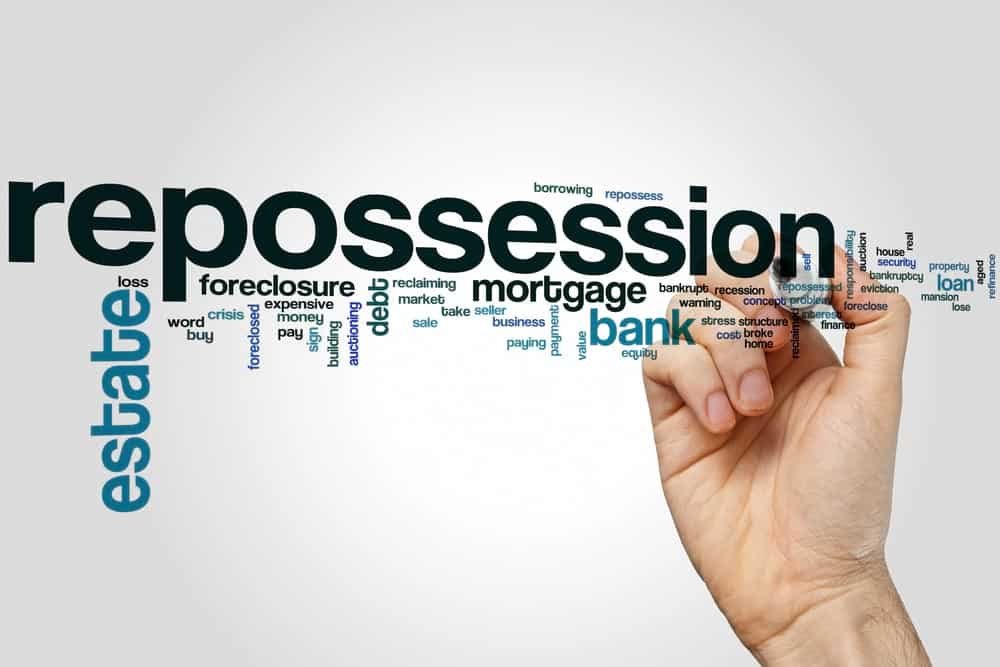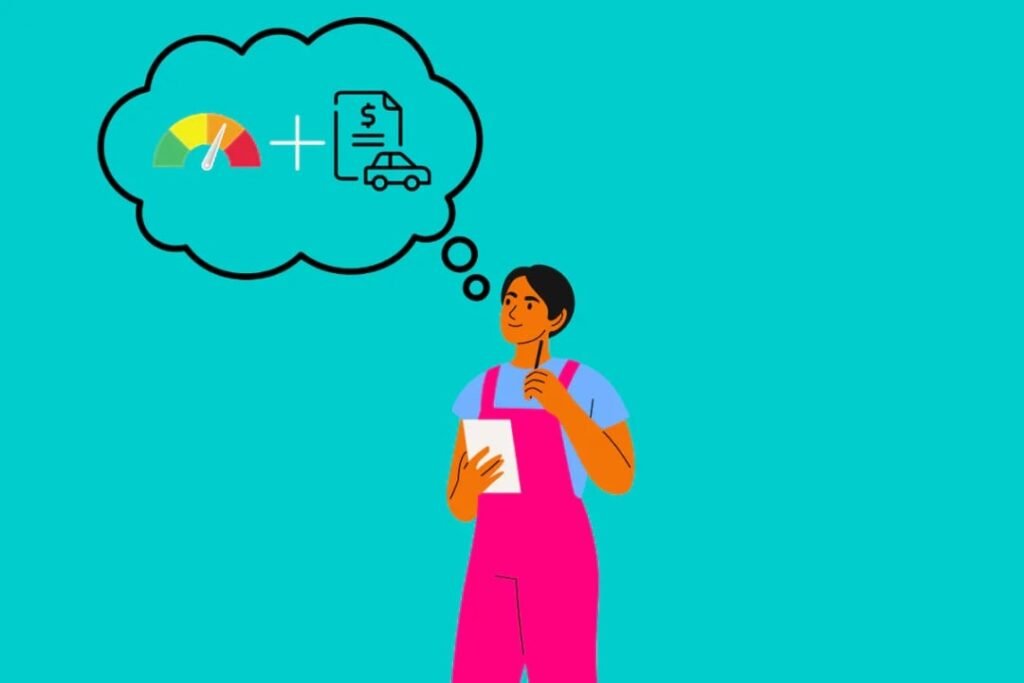Repossession occurs when a lender takes back an asset, usually a vehicle or property, due to the borrower’s failure to meet payment obligations. This action can significantly impact your credit report, as it serves as a negative mark that signals to lenders that you defaulted on a loan. A repossession can lower your credit score, affecting your ability to secure future loans or credit. The relationship between repossession, credit scores, and financial health is critical, as a damaged credit score can make it harder to obtain financing and lead to higher interest rates.

There are two types of repossession: involuntary repossession, which happens when the lender seizes the asset without the borrower’s consent, and voluntary surrender, where the borrower chooses to return the asset to avoid further financial strain. These events are reported by the major credit bureaus—Experian, TransUnion, and Equifax—who track your credit history and reflect the repossession on your credit report for up to seven years.
The Impact of Repossession on Credit Scores
Having a repossession on your credit report shows lenders that you have not always met your financial duties. This can hurt your credit score. A lower credit score can lead to higher interest rates on new loans or may even cause lenders to deny your applications. How much it affects you can depend on your past credit score, the amount owed when the repossession happened, and your whole credit history.

At first, a repossession can greatly lower your credit score. But over time, this effect becomes less important, especially if you build good credit habits.
Understanding Repossession and Its Consequences
A repossession is a bad mark on your credit history. It acts as a warning for lenders looking at your application. When a lender takes back an asset, they tell the three major credit bureaus: Experian, Equifax, and TransUnion. These bureaus keep track of your credit history, showing both good and bad financial actions.
Because of this, getting new credit can be hard. This includes car loans, mortgages, or even credit cards. Lenders see you as a risky borrower. They may not want to give you new credit because they worry you could default again.
So, it’s important to know how serious a repossession is. You should take steps to lessen its effect on your future finances.
Short-Term vs. Long-Term Credit Score Effects
A repossession can lead to a big drop in your credit score. This happens mainly because payment history is very important for credit scores. How much your score drops depends on what your starting score is. If you have a good credit score, you may see a bigger decline.
The original delinquency date is the first missed payment that caused the repossession. This date starts the seven-year reporting time. Here’s what to expect:
- Short-Term (1-2 Years): Getting new credit may be hard. You might deal with higher interest rates and tougher terms from lenders.
- Mid-Term (3-4 Years): The negative effects lessen as time goes by. If you show good credit behavior now, your score can start to improve.
- Long-Term (5-7 Years): The repossession will matter less for your score. After seven years, it will get removed from your credit report.
Navigating the Timeline of a Repossession on Your Credit Report
Knowing how long a repossession stays on your credit report is important. This helps you set realistic expectations and plan for your future credit needs. Keep in mind that the negative mark lasts for a while, but its impact gets smaller as time goes on, especially if you work hard to improve your credit.

By taking a positive approach to your credit health, you can lessen the negative effects of a repossession. This will help you move closer to your financial goals.
Initial Reporting and Its Immediate Effects
The credit reporting process for a car loan starts when the lender reports the first missed payment. This usually happens when the payment is 30 days late. If more payments are missed, the lender keeps updating the credit bureaus, which hurts your credit report even more.
The lender will notify the credit bureaus about the car being repossessed. This shows up on your credit report soon after. The report will include information like the type of loan, the original lender, and how much was owed when the car was taken.
These negative entries stay on your credit report and can make it harder to get new credit. It’s important to act quickly to reduce the damage and work on improving your credit.
The 7-Year Mark: What Happens to Your Credit Report?
According to the Fair Credit Reporting Act (FCRA), a car repossession can remain on your credit report for up to seven years from the original delinquency date. The Federal Trade Commission (FTC) enforces the FCRA, safeguarding consumers’ rights regarding their credit information.
While the repossession itself falls off after seven years, its impact on your credit score diminishes over time, especially if you consistently practice good credit habits.
| Timeline | Event | Impact on Credit Report |
| Day 1 | First Missed Payment | Reported to Credit Bureaus |
| 30+ Days | Subsequent Missed Payments | Updated to Credit Bureaus |
| Repossession Date | Repossession Reported | Detailed Entry Added to Report |
| 7 Years from Original Delinquency Date | Repossession Removed | No Longer Visible to Lenders |
Strategies for Mitigating the Impact of Repossession
While losing a repossession can hurt your credit, there are steps you can take to reduce the harm. Begin by looking at your financial situation. Then, check out ways to manage your current debt, like setting up payment plans or focusing on paying off debts.

Make sure to pay your bills on time and lower your credit card balances. Avoid getting into new debt as well. These actions are important for rebuilding your credit. Over time, these good habits will help you move past the negative effect of the repossession. This can lead to a better financial future.
Steps to Take Immediately After Repossession
After a repossession, it’s important to act fast to protect your credit. Start by looking closely at your finances. Know your monthly income, expenses, and debts. Think about if you can get back the item or if selling it is a better choice.
If getting it back is possible, reach out to your lender to work out a payment plan. Lenders might agree to help you, especially if it’s cheaper for them than reselling the item. Be clear about your financial limits, suggest a practical payment plan, and make sure you understand everything involved.
If it’s hard to get back the item, focus on making your other loan payments on time. This shows you are still responsible with your money, even after this setback. It will also help protect your credit from getting worse.
Long-Term Strategies to Rebuild Your Credit
Rebuilding your credit after a repossession takes time and effort. It is not a quick process. A good way to start is by getting a secured credit card. This kind of card needs a security deposit that usually matches your credit limit. If you use a secured card wisely, by paying on time and keeping your credit use low, it can help improve your credit score.
Another key part of building credit is managing your credit utilization rate. This tells how much of your available credit you are using. It is best to keep this below 30%. Doing this shows lenders that you can manage credit well. You can lower this rate by paying off your credit card debt or asking for higher credit limits when you can.
Be patient and keep working on it. Rebuilding credit after something like a repossession does take time. However, if you show that you are managing your money responsibly in the long run, you will see good results.
Conclusion
A repossession can remain on your credit report for up to seven years, impacting your credit score and financial future. However, rebuilding your credit is entirely possible with consistent effort, such as making timely loan payments, reducing credit card debt, and managing your credit utilization. It’s essential to check your credit report regularly, contact creditors for potential arrangements, and stay proactive in improving your credit history. Maintaining a good credit score is crucial for securing future loans, qualifying for better interest rates, and enhancing your overall financial situation.
Frequently Asked Questions
How long does a repossession stay on your credit report in the United States?
In the U.S., when you get a car repo, it can stay on your credit report for seven years. This starts from the date of your first missed payment. It can hurt your credit score and affect your future credit accounts. The rules can change depending on the state laws. However, the major credit bureaus follow the Fair Credit Reporting Act for reporting any negative payment history.
Can the impact of a repossession on a credit score be minimized?
Yes, a repossession can hurt your credit score. However, you can reduce this effect. Try to talk with the lender about new payment terms. You can also set up a new payment plan. Make sure to focus on paying down other debts, like credit card debt, each month. This can help improve your credit score.
Is it possible to remove a repossession from your credit report before 7 years?
It can be tough, but you may be able to get a repossession taken off your credit report before seven years. If the information isn’t correct, you can dispute it with the credit bureau using the Consumer Financial Protection Bureau. Another option is to talk to your lender about a voluntary surrender. This might help you remove that entry from your report.
How does a voluntary repossession affect your credit compared to an involuntary one?
Both voluntary and involuntary repossessions can hurt your credit score. However, the impact can be a bit different. Usually, an involuntary repossession happens when a lender takes back an asset without your permission. This type often shows a worse loan default, which can cause a bigger drop in your FICO credit score.
